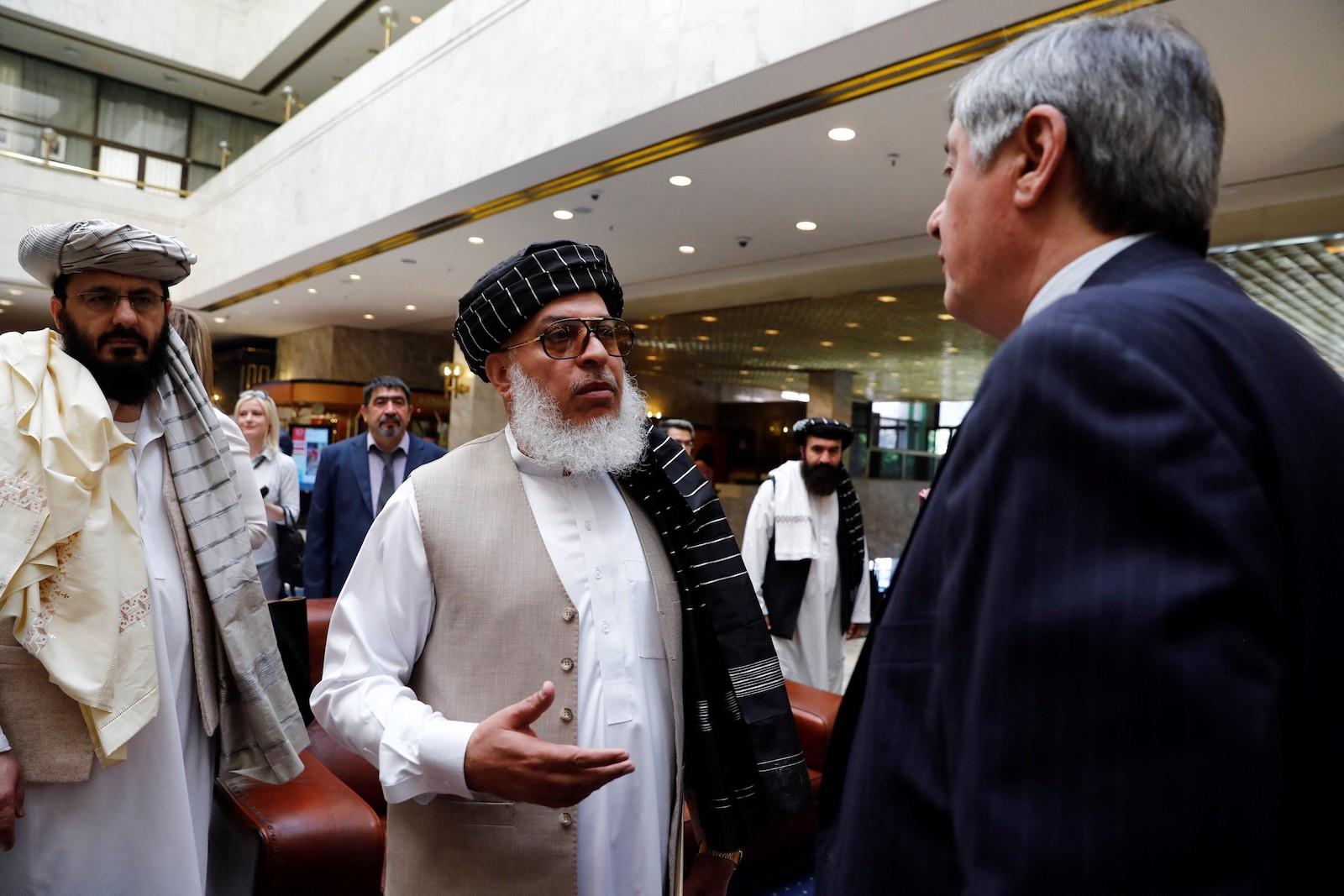(MENAFN- Asia Times) As expected, the situation in Afghanistan was the focal point of the discussions at the 20th summit of the Shanghai Cooperation Organization (SCO) in Dushanbe on Friday. Yet the SCO's Dushanbe Declaration is scanty on the topic.
The 8,300-word document devoted hardly 170 words to the Afghan situation. It made just three inane points, namely, that the SCO member countries:
- Support the emergence of Afghanistan as an“independent, neutral, united, Democratic and peaceful State, free of terrorism, war and drugs”;
- Believe it is“critical to have an inclusive Government” in Afghanistan; and
- Consider it important that the international community makes“active efforts” to facilitate Afghan refugees return to their country.
The SCO's stance is based on consensus decisions, and given such big divergences in the viewpoints of member countries, a consensus was hard to reach.
This is a setback for the SCO insofar as it has so little to say and even less to contribute to the resolution of the single biggest crisis in regional stability and security the grouping has had to face in its entire history.
How did this happen? The short answer is that India chose to be a lone ranger tilting at the SCO windmills. Prime Minister Narendra Modi made two hard-hitting speeches on September 16 and 17 – the first one at the SCO summit on the“future of the SCO” followed by a second speech at the SCO-CSTO Outreach Summit that was exclusively devoted to Afghan developments.
Modi came down emphatically on the“transition of power” in Afghanistan, which he said“happened without negotiation” and, therefore,“raises questions about the acceptability of the new system.” He virtually questioned the legitimacy of the Taliban government.
Modi recommended:“And therefore, it is necessary that the decision on recognition of such a new system is taken by the global community collectively and after due thought. India supports the central role of the United Nations on this issue.”

India's Prime Minister Narendra Modi shakes hands with Russia's President Vladimir Putin during a meeting on the sidelines of the 11th BRICS Summit in Brasilia, Brazil, November 13, 2019. Photo: AFP via Sputnik / Mikhail Metzel
The contrast between Modi's speech and those of Russian President Vladimir Putin and Chinese President Xi Jinping couldn't have been sharper. Both Putin and Xi urged the world to unfreeze Afghanistan's assets and boost assistance. They urged the Taliban government to remain peaceful toward its neighbors and combat terrorism and drug trafficking.
Most important, they urged the SCO to“use its potential” to“stimulate the new Afghan authorities” in fulfilling their promises and bringing security to Afghanistan. Xi said, in particular, that the SCO member nations should help to drive a smooth transition in Afghanistan.
In essence, Modi called on the SCO to harmonize with the US-led moves at the UN Security Council. Plainly put, the SCO should play second fiddle to the Quadrilateral Security Dialogue, which is also holding a summit in Washington, DC, on September 24 where Afghanistan is expected to be a key agenda item. Before the Quad summit, US President Joe Biden is due to meet with Modi on the same day.
The Dushanbe Declaration will be received with a sigh of relief in Washington. India has practically blocked the SCO from taking any assertive role on Afghanistan, which of course creates time and space for the US to press ahead with its strategy.
The calibrated US strategy vis-à-vis the Taliban aims at America's re-entry to the Afghan theater so that the Pentagon and the Central Intelligence Agency can pursue“strategic competition” with Russia and China and destabilize Iran.
Washington is pressuring the Taliban to make them realize that they have no future without American approval and unless the US has its way, that approval will be withheld and Washington will continue to make life hell for the Taliban government.
The US estimates that left to themselves, the Taliban are keen to have a“win-win” relationship with Washington. Against this backdrop, the US views the SCO as a potential“spoiler.”
However, the Dushanbe Declaration is not the last word, nor can the SCO be held hostage to blackmail. On the sidelines of the SCO summit, four member countries already put their heads together to plow an independent furrow – China, Pakistan, Russia and Iran.

Taliban representatives led by Head of Political Office of the Taliban Sher Mohammad Abbas Stanakzai (C) chats with Russian presidential envoy to Afghanistan, Zamir Kabulov (R), prior to Afghan talks within a conference marking a century of diplomatic relations between Afghanistan and Russia on May 28, 2019, Moscow, Russia. Photo: AFP via Anadolu Agency / Sefa Karacan
The foreign ministers of these four countries met in Dushanbe separately on Friday. Interestingly, this core group issued a joint statement, which shows that the initiative was far from impromptu.
The joint statement underscored the centrality of the sovereignty, independence, and territorial integrity of Afghanistan and of the“Afghan-led, Afghan-owned” principle. It is an implicit rejection of any unilateral US interventions in Afghanistan.
Incidentally, US Secretary of State Antony Blinken disclosed last week in congressional hearings in Washington that the Biden administration is engaged“deeply” in discussions with India for facilitating US“over-the-horizon” attacks on Afghan targets that are being planned.
Chinese State Councilor and Foreign Minister Wang Yi put forward a five-point proposal at the meeting of the FMs on the“coordination and cooperation” among the four countries related to Afghanistan in the next stage:
Urge the United States to fulfill its obligations earnestly and take its responsibility. Contact and give guidance to Afghanistan. Although Afghanistan has established an interim government, it has not finalized its domestic and foreign policies. Guard against the spillover of security risks. Encourage all parties to form synergy to assist Afghanistan. Help Afghanistan join in regional cooperation. Clearly, the US-Indian collusion over Afghan operations is generating unease in the region. Pakistani Prime Minister Imran Khan has had a“lengthy” meeting with Tajik President Emomali Rahmon and he subsequently told the Kremlin's RT media network that he is working with Afghanistan's neighbors to determine what the current setup in Kabul can do in order to gain the international community's recognition.
Imran Khan remarked that recognition of the Taliban government would be a significant step. He was brutally frank about what is at stake.
“I think the only one choice left is to incentivize [the Taliban], to encourage them to stick to the promises and announcements they have made about an inclusive government, about human rights, [about] giving amnesty to everyone,” he said.“Hopefully, if it works, you can have peace in Afghanistan for the first time in 40 years.”
But India has a closed mind on the Taliban, which it sees as friendly toward both Pakistan and China. In strategic terms, India sees its interests best served by the US return to the geopolitics of Afghanistan to counterbalance Pakistan and China.
The Indian stance is contrary to the approach of not only Russia and China, but of Uzbekistan and Kazakhstan, the two biggest Central Asian states, as well.

Men carry the Guru Granth Sahib, the holy book of the Sikhs, after it was brought back by Sikh evacuees from Afghanistan to New Delhi on August 24, 2021. Photo: AFP / Money Sharma
Uzbek President Shavkat Mirziyoyev said in his remarks at the Dushanbe summit: “A new reality has emerged, new people have come to power. This is a fait accompli. That being the case, it is necessary to develop a coordinated approach to the situation in Afghanistan, as well as to develop dialogue with the new authorities.”
Kazakh President Kassym-Jomart Tokayev voiced the same opinion in even stronger terms:“CSTO and SCO countries should initiate informal dialogue with the new authorities in Afghanistan. These communications will make it possible to assess the real intentions of the Taliban, and to form a shared understanding of threats to regional stability and restore trade and economic ties with this country.”
The regional states are unlikely to pay heed to New Delhi's red line on constructive engagement with the Taliban government. While for India this is largely a shadow play against Pakistan and China, for other regional states, core interests of national security are involved and politicking is the last thing on their mind.
The Moscow-led Collective Security Treaty Organization (CSTO) is gearing up for deployment on the Tajik-Afghan border.
This article was produced in partnership by Indian Punchline and Globetrotter , which provided it to Asia Times.
M K Bhadrakumar is a former Indian diplomat.
MENAFN20092021000159011032ID1102825249